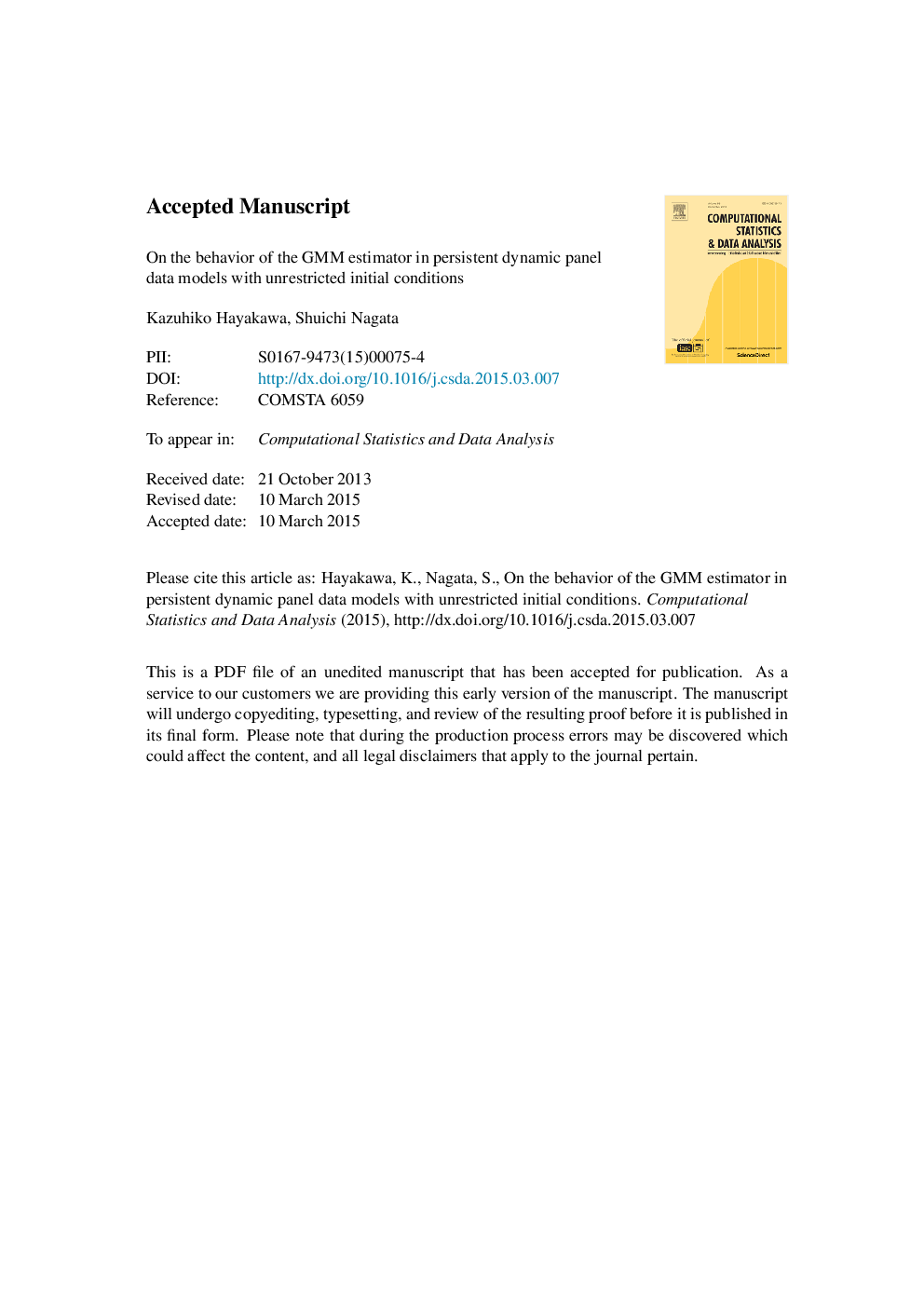| Article ID | Journal | Published Year | Pages | File Type |
|---|---|---|---|---|
| 6869110 | Computational Statistics & Data Analysis | 2016 | 37 Pages |
Abstract
The behaviour of the first-difference generalized method of moments (FD-GMM) estimator for dynamic panel data models when the persistency of the data is (moderately) strong and the initial conditions are unrestricted is investigated. It is shown that both the initial conditions and the degree of persistency affect the rate of convergence of the GMM estimator when the autoregressive parameter is modelled as a local to unity system. One of the most important implications is that the FD-GMM estimator can be consistent even when persistency is strong if mean nonstationarity is present. This result is in sharp contrast to the well-known weak instruments problem of the FD-GMM estimator that arises under mean stationarity. Monte Carlo simulations are carried out and it is confirmed that the derived asymptotic results approximate the finite sample behaviour well. Since these results are for the AR(1) case, extensive simulations are conducted for models with an endogenous variable, and it is shown that similar results to the AR(1) case are obtained. Finally, an empirical illustration that supports the theoretical results is provided, and it is confirmed that the FD-GMM estimator can precisely estimate the coefficients even when persistency is strong if mean nonstationarity is present. In addition, the insight that reducing the number of instruments as a strategy to mitigate the finite sample bias is not always useful is obtained.
Related Topics
Physical Sciences and Engineering
Computer Science
Computational Theory and Mathematics
Authors
Kazuhiko Hayakawa, Shuichi Nagata,
